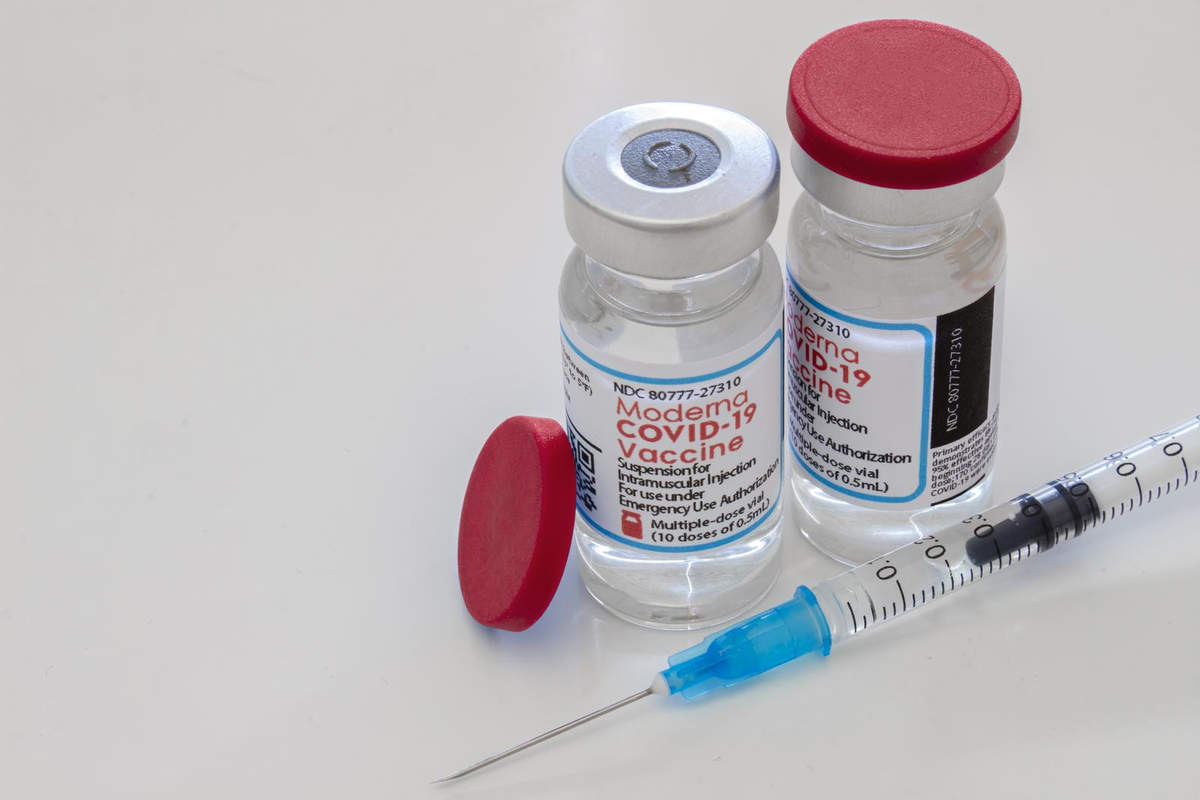The first bivalent booster vaccine, COVID-19, is approved by the UK drug regulator. Analysis and comments by Jean-Marc Sabatier based on information provided by the manufacturer.
This was officially announced in a press release from the UK Medicines Agency on 15 August 2022. The adapted COVID-19 vaccine manufactured by Moderna targets two different variants of the coronavirus – the original 2020 virus and the Omicron variant.
Complies with safety standards
An updated version of the COVID-19 vaccine made by Moderna that targets two coronavirus variants (known as a “bivalent” vaccine) has today been approved for adult booster doses by the Medicines and Healthcare products Regulatory Agency (MHRA) after it was found to meet the UK regulator’s standards of safety, quality and effectiveness.
The decision to grant approval for this booster vaccine in the UK was endorsed by the government’s independent expert scientific advisory body, the Commission on Human Medicines, after carefully reviewing the evidence.
In each dose of the booster vaccine, ‘Spikevax bivalent Original/Omicron’, half of the vaccine (25 micrograms) targets the original virus strain from 2020 and the other half (25 micrograms) targets Omicron. This is half the dose of messenger RNA normally injected with Moderna vaccines (100 µg).
The MHRA’s decision is based on data from a clinical trial which showed that a booster with the bivalent Moderna vaccine triggers a strong immune response against both Omicron (BA.1) and the original 2020 strain. In an exploratory analysis the bivalent vaccine was also found to generate a good immune response against the Omicron sub-variants BA.4 and BA.5.
Safety monitoring showed that the side effects observed were the same as those seen for the original Moderna booster dose and were typically mild and self-resolving, and no serious safety concerns were identified.
Dr June Raine, MHRA Chief Executive said:
“I am pleased to announce the approval of the Moderna bivalent booster vaccine, which was found in the clinical trial to provide a strong immune response against the Omicron BA.1 variant as well as the original 2020 strain.
“The first generation of COVID-19 vaccines being used in the UK continue to provide important protection against the disease and save lives. What this bivalent vaccine gives us is a sharpened tool in our armoury to help protect us against this disease as the virus continues to evolve.
“We have in place a comprehensive safety surveillance strategy for monitoring the safety of all UK-approved COVID-19 vaccines and this will include the vaccine approved today.”
Professor Sir Munir Pirmohamed, Chair of the Commission on Human Medicines said:
“The Commission on Human Medicines and its COVID-19 Vaccines Expert Working Group has independently reviewed the data on safety, quality and effectiveness and agrees with the MHRA’s decision.”
“The virus, SARS-CoV-2, is continually evolving in order to evade the immunity provided by vaccines. This novel bivalent vaccine represents the next step in the development of vaccines to combat the virus, with its ability to lead to a broader immune response than the original vaccine.”
The Joint Committee on Vaccination and Immunisation (JCVI) will advise on how this vaccine should be offered as part of the deployment programme.
Jean-Marc Sabatier: “Put an end to these boosters”

A real vaccine must meet two criteria: efficacy and safety. As far as efficacy is concerned, this new vaccine (which in fact is not a vaccine) will not be much more effective than its predecessors, even with the addition of a messenger RNA coding for the modified Spike protein of an Omicron sub-variant. Clearly, it will not prevent infection or transmission of SARS-CoV-2.
This new vaccine will not be without side effects, as the two messenger RNAs, injected simultaneously, are expected to produce Spike proteins that are still potentially capable of binding to the ACE2 receptor of target cells, leading to RAS dysfunction and the potential triggering of Covid-19 diseases.
The dangers associated with lipid nanoparticles are still present in this new vaccine.
In summary, this new vaccine will not bring anything in terms of protection. This additional vaccine injection will only increase the risk of developing more severe forms of the disease via the ADE and ERD infection facilitation phenomena already described. In addition to the potential toxicity of the lipidic nanoparticles present in the vaccine. The benefit-risk balance therefore remains clearly unfavorable with the new vaccines, still based on the viral Spike protein.
Ideally, from a health point of view, these booster vaccines should be stopped.
*Jean-Marc Sabatier is Director of Research at the CNRS and holds a PhD in Cell Biology and Microbiology and an HDR in Biochemistry. Editor-in-Chief of the international scientific journals: “Coronaviruses” and “Infectious Disorders – Drug Targets”. He is speaking in his own name.

